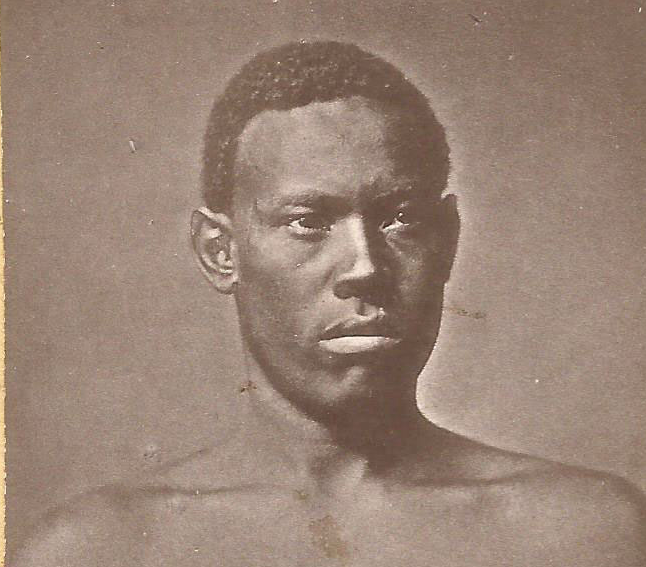August 21, 1837: Nat Turner’s Black Uprising
You are there: On Sunday, August 21, 1831 the apocalyptic vision of enslaved people murdering white masters to win freedom becomes reality as Nat Turner strikes at Joseph Travis‘s farm near Jerusalem, Virginia, seventy miles south of Richmond.
This uprising is preceded by four others, the most successful to date being the 1811 rampage led by Charles Deslondes in Louisiana.
Four Prior Black Uprisings
| Year | Where | Led By | Outcome |
| 18008/30 | Henrico County, Va. | Gabriel Prosser, age 24, blacksmith and literate, possibly influenced by 1804 Haitian Revolution. | A large-scale plot to kidnap Governor James Monroe and take over Richmond is leaked and the conspirators are arrested before it can begin. Twenty-seven Blacks are hanged including Gabriel and his two older brothers. |
| 1805Jan. | Chatham Manor, Va | Several Blacks | A cruel overseer named Starks is whipped by angry slaves who are subsequently hanged. |
| 18111/8-1/11 | German Coast, La., 30 miles upriver from New Orleans | Charles Deslondes, age 31, overseer role owner flees Haiti after revolt. | Largest slave revolt in U.S., band of 200-300 with axes, pikes, hoes, destroy plantations aiming at N.O., 65 Blacks & 2 whites killed, armed militia stops, trials, 16 shot and decapitated heads on poles along highway, Deslondes tortured and body mutilated. |
| 1822June | Charleston, SC | Denmark Vesey, age 54, freedman, helps found AME church, community leader. | Complex plan to form army, take Charleston on Bastille Day and sail to Haiti, but word leaks out and conspirators arrested. Trial and 35 hanged along with Vesey. |
The mastermind of the 1837 uprising is Nat Turner, age 30, an enslaved man whose first master teaches him to read the Bible. He does this over and over until he is able to quote long passages from the Old Testament, and begins to preach on the Turner plantation.
However, his status changes when his old master dies and his son angers Nat by treating him as an ordinary field hand. When the son also dies, Turner and his wife are sold to different masters. After protesting this treatment, his new master whips him savagely, a punishment that further fosters Turner’s rage against his fate. Finally, he ends up on the Travis farm, where he adopts a more passive attitude in order to receive kinder treatment.
But kind treatment no longer transfers into forgiveness for Nat. Since 1828 his lengthy periods of fasting and prayer and communion with the spirits have convinced him that his destiny lies in “fighting the Serpent” and putting to death those who have stolen the lives of enslaved people.
In February 1831 he interprets a solar eclipse as a signal that the time for retribution is near. Six months later, after secretly spreading the word to other Blacks in the neighborhood, he strikes at the Travis’s. That night, seven slaves use axes to murder Travis, his wife, Sally, and their two children (one a newborn infant) in their beds.
Once steeped in the Travis’s blood, Turner moves on from one farm to the next, enlisting more supporters as he goes. At another farm, some 15 slaves kill Catherine Whitehead, her grown son, three of her daughters and a grandchild. Nat later confesses to bludgeoning several to death with a fence post.
Now 40 strong, Turner’s avengers head toward the town of Jerusalem, where church bells are already ringing out word of The Insurrection. At the Waller homestead, they pause to decapitate ten children and murder their mother. As they depart, their strength reaches its zenith of 60-70 enslaved people. Some are drunk, others poorly armed, but all are eager to push onward.
The have sacked 15 homesteads and killed about 60 whites by the time they encounter a series of town posses who break their momentum and forces them to retreat. From there the operation turns against the rebels. They try to re-group and add new recruits, but this fails. Nat Turner escapes, but most are captured and some 35 are killed on the spot. Others are tried on August 31, with 31 convicted and 19 executed.
Turner hides for almost two months in the vicinity of the Travis farm, before he too is caught and jailed. While there he is interviewed by a lawyer, Thomas Gray, who soon publishes the book titled The Confessions of Nat Turner.
At his trial he is nothing but defiant:
I am not guilty, because I do not feel so…I’m not sorry for killing all those white people. I alone conceived the idea of insurrection, which has been evolving in my mind for several years. And, no I didn’t fail. Our names are now written in blood across the map of this county, nor will we be the last.
Nat Turner is hanged on November 11 and, according to contemporary accounts, his body is turned over to surgeons who dismember and skin it to provide macabre mementoes to local residents.
